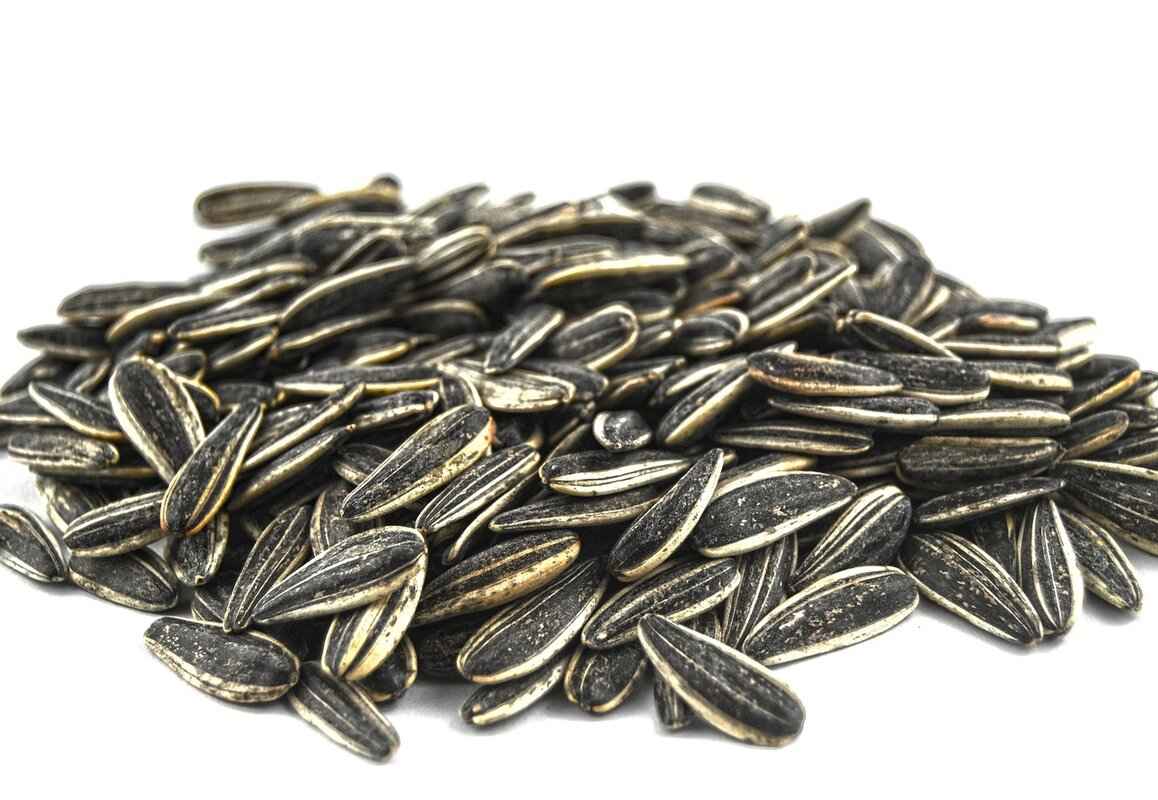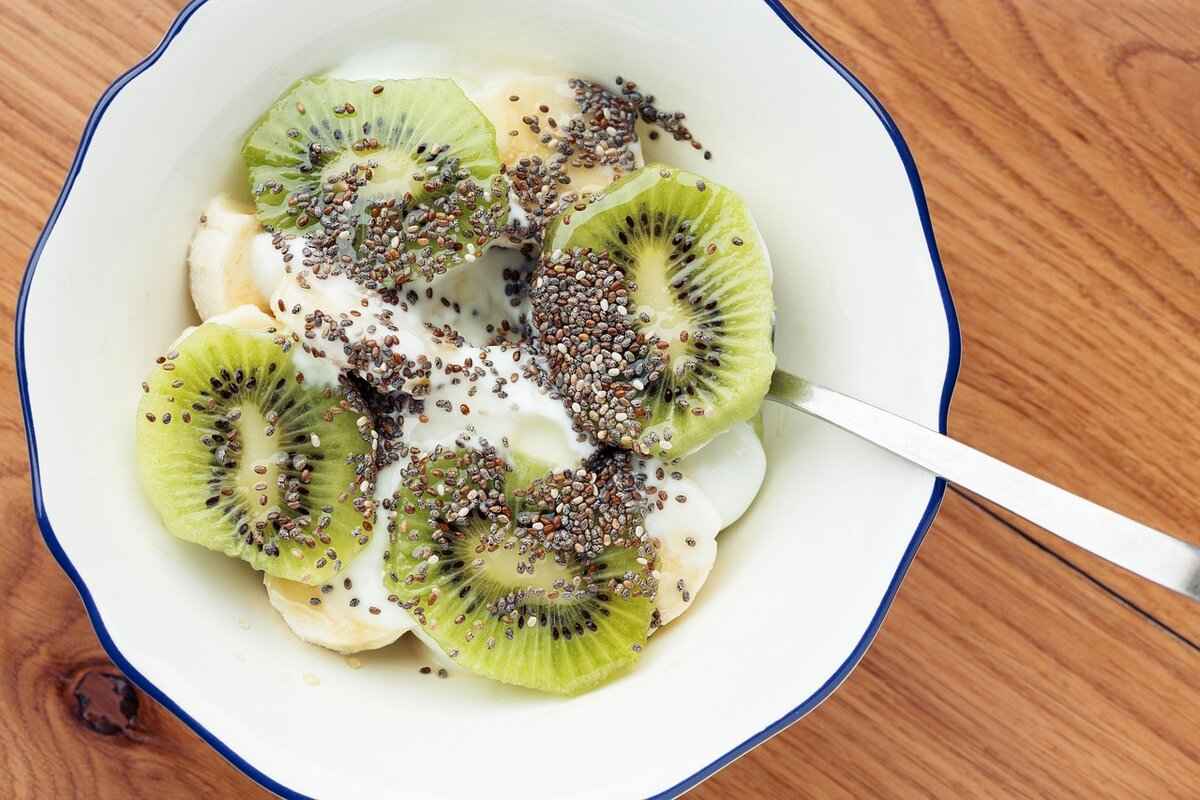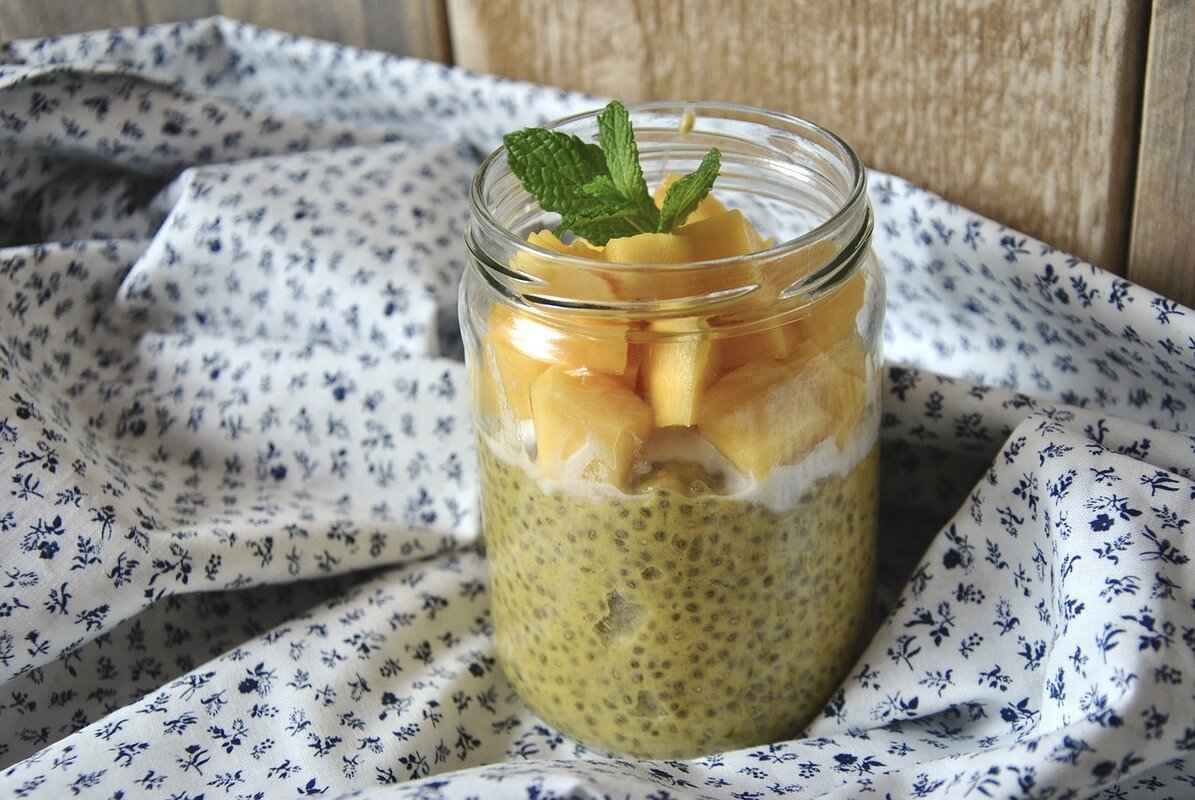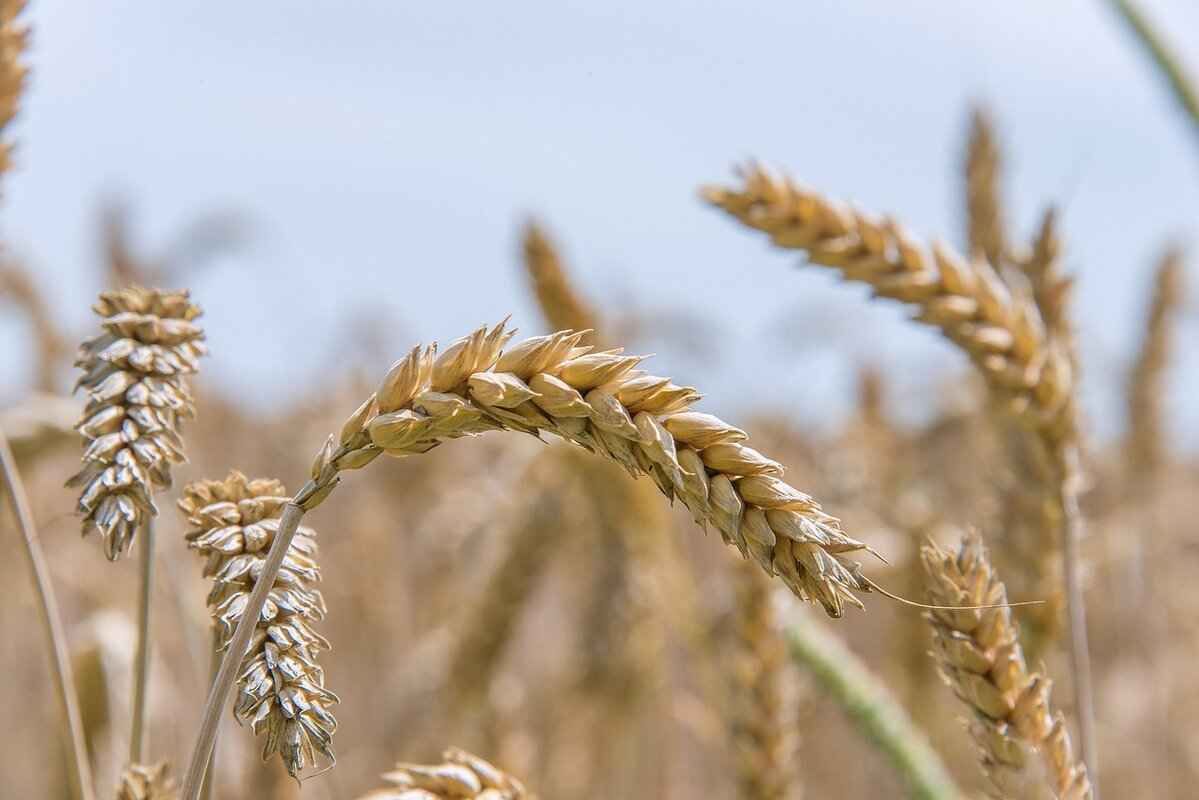Chia seeds have gained significant attention in the health community due to their remarkable nutritional profile. These tiny seeds, derived from the Salvia hispanica plant, are packed with nutrients, particularly fiber, which plays a crucial role in enhancing digestion and promoting gut health. This article delves into the various benefits of chia seeds, focusing on their fiber content and its positive effects on the digestive system.
Chia seeds are small, black seeds that are rich in essential nutrients. They are an excellent source of fiber, omega-3 fatty acids, and various antioxidants. Their versatility in culinary uses, along with their health benefits, makes them a popular choice among health enthusiasts.
One of the standout features of chia seeds is their high content of soluble fiber. This type of fiber dissolves in water and forms a gel-like substance in the gut, which aids in regulating bowel movements and preventing constipation. By absorbing water, chia seeds help to soften stool, making it easier to pass and promoting overall digestive health.
Soluble fiber is a type of fiber that dissolves in water, creating a viscous gel. This gel slows down the digestion process, which can help maintain steady blood sugar levels and increase feelings of fullness. Consequently, incorporating soluble fiber into your diet can be beneficial for weight management as it helps control appetite.
Chia seeds are remarkable in their ability to absorb water—up to 12 times their weight. This property not only aids in hydration but also plays a pivotal role in digestive health. By swelling and forming a gel, chia seeds help to facilitate the smooth passage of food through the digestive tract, promoting regularity.
The high fiber content in chia seeds can significantly contribute to weight management. By promoting a sense of fullness, chia seeds can help control calorie intake. When included in a balanced diet, they may assist in reducing the likelihood of overeating.
Fiber-rich foods like chia seeds are essential for weight loss efforts. They help you feel full longer, which can decrease overall food consumption. When combined with a healthy diet, the fiber in chia seeds supports weight loss by curbing hunger and preventing unnecessary snacking.
Chia seeds also act as a source of prebiotic fiber, which nourishes beneficial gut bacteria. A healthy gut microbiome is crucial for optimal digestion and overall health. By supporting the growth of good bacteria, chia seeds contribute to improved gut health and digestion.
Incorporating chia seeds into your daily meals is simple and versatile. They can be added to a variety of dishes, including:
- Sprinkling on salads
- Blending into smoothies
- Using in baking recipes
These seeds not only enhance the nutritional value of meals but also provide a delightful texture.
Some popular recipes that highlight the benefits of chia seeds include:
- Chia Seed Pudding: A delicious and nutritious breakfast option.
- Smoothies: Boost your smoothie with added fiber and nutrients.
- Energy Bars: Homemade energy bars with chia seeds for a healthy snack.
Experts recommend a daily intake of about one to two tablespoons of chia seeds. This amount allows you to enjoy the health benefits without overwhelming your digestive system.
While chia seeds are generally safe for most individuals, consuming them in excess can lead to digestive discomfort, especially if not paired with sufficient water intake. It is essential to stay hydrated to help the seeds expand properly in the stomach.
People with certain digestive disorders or a history of esophageal issues should consult a healthcare provider before adding chia seeds to their diet. It’s crucial to ensure that these seeds are suitable for your individual health needs.
To avoid potential digestive issues, it’s advisable to introduce chia seeds gradually into your diet. Ensuring adequate hydration is key to maximizing their benefits and minimizing any discomfort.

What Are Chia Seeds?
Chia seeds are small, nutrient-dense seeds derived from the Salvia hispanica plant, which is native to Central America. These tiny black seeds have gained immense popularity in recent years, thanks to their impressive nutritional profile. They are especially recognized for being an excellent source of fiber, omega-3 fatty acids, and a variety of antioxidants. Chia seeds are often touted as a “superfood,” and for good reason.
Chia seeds are tiny black seeds from the Salvia hispanica plant, known for their high nutritional value, particularly their fiber content, omega-3 fatty acids, and antioxidants. These seeds were a staple in ancient Aztec and Mayan diets, valued not only for their nutritional benefits but also for their ability to provide sustained energy. Today, they are widely used in various culinary applications, from smoothies to baked goods, due to their versatility and health benefits.
One of the standout features of chia seeds is their high content of soluble fiber. This type of fiber dissolves in water, forming a gel-like substance that aids in digestion. By creating this gel, chia seeds help to regulate bowel movements, prevent constipation, and support overall digestive health. The gel also slows down the digestion process, which can help maintain steady blood sugar levels and prolong feelings of fullness.
Soluble fiber is crucial for digestive health. It absorbs water, forming a gel that slows digestion, which can help to maintain a steady blood sugar level. This property not only aids in digestion but also provides a feeling of fullness, making it easier to manage weight. Including foods rich in soluble fiber, such as chia seeds, in your diet can significantly enhance your digestive health.
Chia seeds are remarkable in their ability to absorb water—up to 12 times their weight. This unique characteristic helps to soften stool, making it easier to pass through the digestive tract, thereby promoting regularity. When consumed, they swell in your stomach, contributing to a feeling of fullness and helping to control appetite.
The high fiber content in chia seeds can promote satiety, which may help control appetite and reduce overall calorie intake. This makes them a popular choice for those looking to manage their weight effectively. The combination of fiber and protein in chia seeds can help you feel fuller for longer periods, reducing the likelihood of overeating.
Fiber-rich foods like chia seeds can significantly aid in weight loss efforts. They help you feel full longer, which can reduce the urge to snack between meals. When combined with a balanced diet, chia seeds can be a valuable addition to your weight management strategy.
Chia seeds may support a healthy gut microbiome by providing prebiotic fiber, which feeds beneficial gut bacteria. A balanced gut microbiome is essential for good digestion and overall health, and incorporating chia seeds into your diet can contribute to this balance.
Adding chia seeds to your diet is simple and versatile. They can be sprinkled on salads, blended into smoothies, or incorporated into baked goods. Their neutral flavor makes them an easy addition to a variety of meals, providing a nutritious boost without altering the taste.
- Chia Seed Pudding: A popular breakfast option that can be flavored with fruits, nuts, or spices.
- Chia Smoothies: Blend chia seeds into your favorite smoothie for added nutrition.
- Energy Bars: Homemade energy bars can include chia seeds for a nutritious snack.
Experts recommend consuming about one to two tablespoons of chia seeds daily to reap their health benefits without overwhelming your digestive system. It’s important to start with a smaller amount and gradually increase your intake to allow your body to adjust.
While chia seeds are generally safe for most people, excessive consumption may lead to digestive discomfort, particularly if not consumed with enough water. It’s crucial to drink plenty of fluids when incorporating chia seeds into your diet to help them expand properly in the stomach.
Individuals with certain digestive disorders or those with a history of esophageal issues should consult a healthcare provider before adding chia seeds to their diet. It’s always best to seek professional advice to ensure that chia seeds are a suitable addition to your nutritional plan.
To avoid potential digestive issues, it’s essential to gradually introduce chia seeds into your diet. Ensuring adequate hydration is also important, as this helps the seeds expand properly in the stomach, maximizing their health benefits.

How Do Chia Seeds Promote Digestive Health?
Chia seeds have gained popularity in recent years, not just for their nutritional benefits but also for their significant role in promoting digestive health. These tiny seeds are packed with soluble fiber, which is crucial in maintaining a healthy digestive system. In this article, we will explore how chia seeds contribute to digestive health and why they should be a staple in your diet.
Chia seeds are derived from the Salvia hispanica plant and are known for their exceptional nutritional profile. They contain a high concentration of soluble fiber, which plays a vital role in digestive health. When chia seeds are consumed, they absorb water and expand to form a gel-like substance in the gut. This gel helps to regulate bowel movements and prevents constipation by making the stool easier to pass.
The gel-like consistency created by chia seeds helps to bulk up the stool, making it softer and easier to eliminate. This is particularly beneficial for individuals who suffer from irregular bowel movements or constipation. By promoting regularity, chia seeds can help maintain a healthy digestive tract and reduce the risk of gastrointestinal issues.
Soluble fiber, like that found in chia seeds, dissolves in water and forms a viscous gel. This process slows down digestion, allowing for better nutrient absorption. Furthermore, it helps to stabilize blood sugar levels, which can be especially beneficial for those managing diabetes. The feeling of fullness that comes from consuming soluble fiber can also aid in weight management, as it reduces the likelihood of overeating.
Chia seeds can absorb up to 12 times their weight in water. This unique ability not only helps to keep you hydrated but also contributes to digestive health by softening the stool. When chia seeds are soaked in liquid, they expand and create a gel-like substance that can help facilitate smoother digestion. Adequate hydration is essential for optimal digestive function, and chia seeds can play a supportive role in this process.
Aside from their fiber content, chia seeds may also contribute to a healthy gut microbiome. They contain prebiotic fiber, which serves as food for the beneficial bacteria in the gut. A balanced gut microbiome is crucial for overall health, as it aids in digestion, boosts the immune system, and can even influence mental health. By incorporating chia seeds into your diet, you can support your gut health and enhance your overall well-being.
- Sprinkle chia seeds on top of salads for added crunch.
- Blend them into smoothies for a nutritious boost.
- Use them in baking, such as in muffins or bread.
- Make chia seed pudding by soaking them in almond milk or yogurt overnight.
Experts suggest consuming about one to two tablespoons of chia seeds daily. This amount is sufficient to reap the health benefits without overwhelming your digestive system. It is essential to drink plenty of water when consuming chia seeds, as this will aid their expansion and prevent any potential digestive discomfort.
While chia seeds are generally safe for most individuals, it is crucial to introduce them gradually into your diet. Overconsumption without adequate hydration can lead to digestive issues. Those with specific digestive disorders or a history of esophageal problems should consult with a healthcare provider before adding chia seeds to their diet.
In summary, chia seeds are a powerful ally for digestive health, thanks to their high soluble fiber content and unique ability to absorb water. By incorporating them into your diet, you can enhance your digestive function, promote regularity, and support overall gut health.
What Is Soluble Fiber?
Soluble fiber is a type of dietary fiber that dissolves in water, forming a gel-like substance in the digestive tract. This unique property plays a significant role in various bodily functions, particularly in maintaining digestive health. When soluble fiber is consumed, it absorbs water and expands, which can help slow down digestion. This slow process is beneficial for several reasons:
- Blood Sugar Regulation: By slowing digestion, soluble fiber can help to stabilize blood sugar levels. This is particularly important for individuals with diabetes or those looking to manage their blood sugar levels effectively.
- Feeling of Fullness: The gel-like consistency created by soluble fiber can promote a sensation of fullness, which may aid in weight management. When you feel full, you’re less likely to overeat, making it easier to stick to a healthy diet.
- Heart Health: Soluble fiber is known to help lower cholesterol levels by binding to cholesterol in the digestive system and promoting its excretion. This can lead to improved heart health and a reduced risk of cardiovascular diseases.
Foods rich in soluble fiber include oats, beans, apples, citrus fruits, and, of course, chia seeds. Incorporating these foods into your diet can provide numerous health benefits while also enhancing your digestive health.
One of the key advantages of soluble fiber is its ability to support gut health. It serves as a prebiotic, feeding the beneficial bacteria in the gut. A healthy gut microbiome is essential for optimal digestion and overall health. By promoting the growth of good bacteria, soluble fiber can help improve digestion and reduce the risk of gastrointestinal disorders.
Moreover, soluble fiber can assist in managing gastrointestinal symptoms such as diarrhea and constipation. For individuals experiencing diarrhea, soluble fiber can absorb excess water in the intestines, helping to firm up stools. Conversely, for those suffering from constipation, it can add bulk to the stool and promote regular bowel movements.
In terms of daily intake, nutrition experts recommend consuming about 25-30 grams of fiber per day, with a good portion coming from soluble fiber. However, it is essential to increase fiber intake gradually and drink plenty of water to prevent digestive discomfort.
In summary, soluble fiber is a vital component of a healthy diet, offering numerous benefits for digestion, weight management, and overall health. By incorporating soluble fiber-rich foods into your daily meals, you can harness its potential to improve your digestive health and support your body’s needs.
How Do Chia Seeds Absorb Water?
Chia seeds have gained immense popularity in recent years, particularly for their remarkable ability to absorb water. This unique property is not just a fascinating fact; it plays a crucial role in enhancing digestive health. When chia seeds are mixed with liquid, they can absorb up to 12 times their weight in water, creating a gel-like substance. This gel formation is significant as it helps in softening stool, making it easier for the body to pass waste through the digestive tract, thereby promoting regularity.
When chia seeds come into contact with water, they swell and form a thick gel due to their high soluble fiber content. This gel is essential for several reasons:
- Soften Stool: The gel-like consistency of hydrated chia seeds can help to soften stool, preventing constipation and facilitating smoother bowel movements.
- Increase Satiety: The expansion of chia seeds in the stomach can create a feeling of fullness, which may help in controlling appetite and reducing overall calorie intake.
- Stabilize Blood Sugar: The gradual digestion of the gel can help maintain steady blood sugar levels, making chia seeds a great addition for those managing their weight or blood sugar.
The ability of chia seeds to absorb water is vital for digestive health for several reasons:
- Promotes Regularity: By softening stool, chia seeds help to promote regular bowel movements, reducing the risk of constipation.
- Supports Gut Health: The gel can act as a prebiotic, feeding beneficial gut bacteria and contributing to a balanced gut microbiome.
- Hydration: Consuming chia seeds can contribute to overall hydration, especially when they are soaked in water or added to smoothies.
To fully take advantage of the water-absorbing properties of chia seeds, consider the following tips:
- Soak Before Consumption: Always soak chia seeds in water or another liquid for at least 30 minutes before eating. This ensures they expand properly and provide their full benefits.
- Incorporate into Meals: Add soaked chia seeds to smoothies, yogurt, or oatmeal for an easy and nutritious boost.
- Experiment with Recipes: Use chia seeds in puddings, baked goods, or as an egg substitute in vegan recipes to enhance both texture and nutritional value.
While chia seeds are generally safe for most individuals, it is important to consume them responsibly. Here are some precautions to consider:
- Hydration is Key: Ensure you drink plenty of water when consuming chia seeds to help them expand properly and avoid digestive discomfort.
- Start Slowly: If you’re new to chia seeds, start with small amounts to allow your digestive system to adjust.
- Consult a Healthcare Provider: If you have a history of digestive issues, consult with a healthcare provider before adding chia seeds to your diet.
In conclusion, the ability of chia seeds to absorb water significantly contributes to their health benefits, particularly for digestion and gut health. By understanding how to incorporate them into your diet effectively, you can harness their full potential and enhance your overall well-being.

Are Chia Seeds Effective for Weight Management?
Chia seeds have gained significant attention in recent years, particularly for their potential benefits in weight management. These tiny seeds, packed with nutrients, are not only versatile but also contribute to a healthier lifestyle. One of the key factors that make chia seeds a popular choice for those looking to manage their weight is their high fiber content.
The fiber in chia seeds plays a crucial role in promoting a feeling of fullness, or satiety. When consumed, chia seeds absorb a substantial amount of water—up to 12 times their weight. This absorption creates a gel-like substance in the stomach, which can significantly slow down the digestive process. As a result, individuals may feel satisfied for longer periods, reducing the urge to snack between meals.
Incorporating chia seeds into your diet may lead to a reduction in overall calorie intake. When you feel full, you are less likely to consume excess calories, which is essential for weight management. Studies have shown that individuals who include fiber-rich foods, like chia seeds, in their meals tend to consume fewer calories throughout the day, making it easier to maintain or lose weight.
Fiber-rich foods, including chia seeds, are beneficial for weight loss for several reasons:
- Increased Satiety: As mentioned earlier, the gel-like consistency created by chia seeds helps you feel full.
- Slower Digestion: Soluble fiber slows down the digestion of carbohydrates, which helps stabilize blood sugar levels and reduces cravings.
- Healthy Gut: A healthy gut microbiome, supported by fiber, can improve metabolism and aid in weight management.
Chia seeds can be an excellent snack option for those looking to manage their weight. They are easy to incorporate into various recipes, such as smoothies, yogurt, or even baked goods. By adding chia seeds to your snacks, you not only enhance the nutritional value but also increase the fiber content, which can help curb hunger.
Experts recommend consuming about one to two tablespoons of chia seeds daily. This amount is sufficient to reap the health benefits without overwhelming your digestive system. It’s essential to pair chia seeds with adequate hydration, as they expand in the stomach, contributing to that feeling of fullness.
While chia seeds are generally safe for most people, consuming them in excessive amounts may lead to digestive discomfort, particularly if not taken with enough water. Individuals with specific digestive issues or those who have a history of esophageal problems should consult a healthcare provider before adding chia seeds to their diet.
Incorporating chia seeds into your diet is simple and versatile. Here are some practical ideas:
- Add them to smoothies for an extra nutrient boost.
- Mix them into yogurt or oatmeal for added texture and fiber.
- Use them in baking recipes, such as muffins or energy bars.
In conclusion, chia seeds are a powerhouse of nutrients, especially fiber, which can play a significant role in weight management. By promoting satiety and reducing overall calorie intake, chia seeds can be a valuable addition to a balanced diet. Whether you sprinkle them on your meals or blend them into your favorite recipes, these tiny seeds can help you achieve your weight management goals.
What Role Does Fiber Play in Weight Loss?
Fiber is an essential component of a healthy diet, particularly for those looking to manage their weight effectively. Foods high in fiber, such as chia seeds, play a crucial role in promoting a feeling of fullness, which can significantly reduce the likelihood of overeating. When combined with a balanced diet, fiber-rich foods can aid in weight loss efforts by helping to control appetite and manage calorie intake.
One of the most significant benefits of consuming fiber is its ability to slow down the digestion process. This is particularly true for soluble fiber, which dissolves in water to form a gel-like substance in the stomach. This gel not only slows the passage of food through the digestive tract but also helps maintain stable blood sugar levels. As a result, individuals experience fewer cravings and a prolonged sense of satiety, making it easier to resist unhealthy snacks between meals.
Chia seeds, in particular, are a fantastic source of soluble fiber. When consumed, they can absorb up to 12 times their weight in water, expanding in the stomach and contributing to the feeling of fullness. This property makes chia seeds an excellent addition to meals, especially for those looking to lose weight. By incorporating chia seeds into smoothies, salads, or even baked goods, individuals can enhance their fiber intake without significantly increasing calorie consumption.
Moreover, fiber-rich foods like chia seeds can help regulate digestion and prevent constipation. A well-functioning digestive system is vital for effective weight management, as it ensures that nutrients are absorbed efficiently and waste is eliminated properly. Incorporating adequate fiber into your diet can lead to regular bowel movements, reducing bloating and discomfort, which can sometimes be mistaken for hunger.
In addition to promoting satiety and aiding digestion, fiber also plays a role in supporting a healthy gut microbiome. A balanced gut microbiome is essential for overall health and can influence weight management. The prebiotic fiber found in chia seeds feeds beneficial gut bacteria, which can enhance metabolic processes and improve overall gut health. A healthy microbiome can lead to better digestion and absorption of nutrients, further supporting weight loss efforts.
To maximize the benefits of fiber for weight loss, it’s essential to pair high-fiber foods with a balanced diet rich in vitamins, minerals, and healthy fats. This combination not only supports weight management but also promotes overall health. It is advisable to gradually increase fiber intake to avoid digestive discomfort, ensuring that the body can adjust to the higher levels of fiber.
In summary, fiber plays a pivotal role in weight loss by promoting fullness, regulating digestion, and supporting a healthy gut microbiome. Incorporating fiber-rich foods like chia seeds into your diet can be an effective strategy for those looking to manage their weight while enjoying a variety of delicious and nutritious meals.
Can Chia Seeds Help with Gut Microbiome Balance?
Chia seeds, derived from the Salvia hispanica plant, are gaining recognition not just for their nutritional benefits but also for their potential positive effects on gut health. These tiny seeds are packed with prebiotic fiber, which plays a crucial role in nurturing the beneficial bacteria residing in our digestive system. By supporting a healthy gut microbiome, chia seeds can significantly improve digestion and overall gut health.
The gut microbiome refers to the diverse community of microorganisms living in our intestines. This complex ecosystem is vital for various bodily functions, including digestion, metabolism, and immune response. A balanced gut microbiome is essential for maintaining good health, and imbalances can lead to issues like inflammation, irritable bowel syndrome, and even obesity.
Chia seeds are rich in soluble fiber, which dissolves in water and forms a gel-like substance. This gel not only aids in digestion but also acts as a food source for beneficial gut bacteria. By consuming chia seeds, you can enhance the growth of these good bacteria, promoting a healthier gut microbiome.
Prebiotics are non-digestible food components that stimulate the growth and activity of beneficial microorganisms in the gut. Chia seeds serve as an excellent source of prebiotics, as they contain both soluble and insoluble fiber. This dual fiber content helps to feed the good bacteria while also promoting regular bowel movements, which is crucial for gut health.
When chia seeds are consumed, they can absorb up to 12 times their weight in water. This ability helps to create a gel-like consistency in the digestive tract, which can facilitate smoother stool passage and prevent constipation. By keeping the digestive system functioning optimally, chia seeds contribute to a balanced gut microbiome.
Research suggests that a healthy gut microbiome can help reduce inflammation in the body. Chia seeds are also rich in omega-3 fatty acids, which are known for their anti-inflammatory properties. By combining both prebiotic fiber and omega-3s, chia seeds may offer a dual approach to reducing gut inflammation and promoting overall gut health.
Incorporating chia seeds into your diet is simple and versatile. Here are some easy ways to add them:
- Sprinkle chia seeds on salads for added crunch.
- Blend them into smoothies for a nutritious boost.
- Use them in baking, such as in muffins or bread.
- Make chia seed pudding by soaking them in milk or a milk alternative.
Experts recommend a daily intake of about one to two tablespoons of chia seeds. This amount provides sufficient prebiotic fiber without overwhelming your digestive system. Remember to drink plenty of water when consuming chia seeds, as they expand in liquid and can absorb moisture in your digestive tract.
While chia seeds are generally safe for most people, excessive consumption can lead to digestive discomfort, particularly if not paired with adequate hydration. It’s best to start with small amounts and gradually increase your intake to allow your body to adjust.
In summary, chia seeds can significantly contribute to gut microbiome balance by providing essential prebiotic fiber, promoting the growth of beneficial bacteria, and supporting overall digestive health. Incorporating them into your diet can be a simple yet effective way to enhance your gut health.

How to Incorporate Chia Seeds into Your Diet?
Incorporating chia seeds into your daily meals is not only simple but also a delicious way to enhance your nutrition. These tiny seeds are incredibly versatile and can be easily added to a variety of dishes, making them a popular choice for health enthusiasts.
Chia seeds can be used in numerous ways to elevate the nutritional value of your meals:
- Sprinkling on Salads: A quick and easy way to add crunch and nutrition is by sprinkling chia seeds on your salads. They provide a delightful texture and a dose of omega-3 fatty acids.
- Blending into Smoothies: When blended into smoothies, chia seeds not only thicken the drink but also contribute essential nutrients, making your smoothie a powerhouse of health benefits.
- In Baking: Chia seeds can be incorporated into baked goods such as muffins, breads, and pancakes. They add fiber and healthy fats, enhancing the overall nutritional profile of your favorite recipes.
- Making Chia Pudding: One of the most popular ways to enjoy chia seeds is by making chia pudding. Mix chia seeds with your choice of milk (dairy or plant-based), sweeten to taste, and let it sit overnight to thicken. Top with fruits, nuts, or granola for a delightful breakfast or snack.
- As an Egg Substitute: For those following a vegan diet, chia seeds can serve as an excellent egg substitute. Mix one tablespoon of chia seeds with three tablespoons of water, let it sit for a few minutes until it forms a gel-like consistency, and use it in your recipes.
Additionally, chia seeds can be added to:
- Yogurt: Stirring chia seeds into yogurt not only boosts its nutritional value but also adds a unique texture.
- Soups and Stews: Adding chia seeds to soups and stews can thicken the broth while enriching the dish with fiber and nutrients.
- Homemade Energy Bars: Incorporate chia seeds into your homemade energy bars for a nutritious snack that keeps you energized throughout the day.
When incorporating chia seeds into your diet, it’s important to start with a small amount, such as one tablespoon per day, and gradually increase your intake as your body adjusts. This will help prevent any potential digestive discomfort.
Moreover, always remember to drink plenty of water when consuming chia seeds, as they can absorb up to 12 times their weight in liquid. This not only aids in digestion but also helps you stay hydrated.
In conclusion, adding chia seeds to your diet is a straightforward and effective way to enhance your meals. Their versatility allows you to enjoy them in various forms, whether as a topping, an ingredient in recipes, or a nutritious snack. By making chia seeds a regular part of your diet, you can reap the numerous health benefits they offer, including improved digestion, weight management, and overall well-being.
What Are Some Popular Recipes with Chia Seeds?
Chia seeds are increasingly becoming a staple in health-conscious diets due to their impressive nutritional profile and versatility. One of the best ways to enjoy these tiny powerhouses is through various delicious recipes that not only highlight their unique texture but also maximize their health benefits. Below, we explore some popular recipes that incorporate chia seeds, including chia seed pudding, smoothies, and energy bars.
Chia seed pudding is a simple yet nutritious dish that can be prepared in various flavors. To make this delightful pudding, combine three tablespoons of chia seeds with one cup of your favorite milk (dairy or plant-based) and let it sit for at least two hours or overnight in the refrigerator. The chia seeds will absorb the liquid, creating a gel-like consistency. You can enhance the flavor by adding vanilla extract, honey, or fresh fruits like berries or bananas. This pudding is not only filling but also packed with fiber, making it an excellent breakfast or snack option.
Smoothies are another fantastic way to incorporate chia seeds into your diet. Simply blend a banana, a handful of spinach, one tablespoon of chia seeds, and your choice of liquid (like almond milk or coconut water). The chia seeds will add a nice thickness to your smoothie while providing an extra boost of omega-3 fatty acids and fiber. You can customize your smoothie by adding other ingredients such as protein powder, yogurt, or nut butter for added nutrition.
Making homemade energy bars with chia seeds is a great way to ensure you have a healthy snack ready whenever hunger strikes. To create these bars, combine one cup of oats, 1/4 cup of nut butter, 1/4 cup of honey, and two tablespoons of chia seeds. Mix well and press the mixture into a lined baking dish. Refrigerate for a couple of hours, then cut into bars. These energy bars are not only tasty but also provide sustained energy, making them ideal for pre- or post-workout snacks.
For those who love spreads, chia seed jam is a fantastic alternative to traditional fruit jams. To make this easy jam, mash two cups of fresh or frozen fruit (like strawberries or blueberries) and mix in two tablespoons of chia seeds and one tablespoon of sweetener (like maple syrup). Let it sit for about 30 minutes until it thickens. This jam is a great topping for toast, yogurt, or oatmeal, providing a burst of flavor along with the health benefits of chia seeds.
Chia seeds can also be incorporated into baked goods. They can be used as an egg substitute in vegan recipes—just mix one tablespoon of chia seeds with three tablespoons of water and let it sit until it forms a gel. Additionally, you can add chia seeds to muffins, pancakes, or breads for an extra crunch and nutritional boost.
Incorporating chia seeds into your meals is not only easy but also provides numerous health benefits. From enhancing digestion to promoting heart health, these tiny seeds pack a big punch. Try out these recipes to enjoy the versatility and nutrition that chia seeds have to offer!
How Much Chia Seeds Should You Consume Daily?
When it comes to incorporating chia seeds into your diet, understanding the appropriate daily intake is essential for maximizing their health benefits while ensuring digestive comfort. Experts generally recommend consuming about one to two tablespoons of chia seeds daily. This quantity allows you to enjoy the numerous advantages of these tiny seeds without overwhelming your digestive system.
The recommendation of one to two tablespoons is based on the fiber content of chia seeds, which is exceptionally high. Each tablespoon contains approximately 5 grams of dietary fiber. Consuming more than the recommended amount may lead to digestive discomfort, particularly for those who are not accustomed to high-fiber diets.
Chia seeds are rich in soluble fiber, which absorbs water and forms a gel-like substance in the gut. This process can promote feelings of fullness and regulate bowel movements. However, if you suddenly increase your fiber intake, your digestive system might react negatively, leading to bloating or gas. Therefore, starting with a smaller quantity and gradually increasing it can help your body adjust.
- Add to Smoothies: Blend chia seeds into your favorite smoothies for a nutritional boost.
- Sprinkle on Salads: Use chia seeds as a topping for salads to enhance texture and nutrition.
- Chia Seed Pudding: Mix chia seeds with yogurt or milk and let them soak overnight for a delicious pudding.
- Baking: Incorporate chia seeds into baked goods like muffins or bread for added fiber.
While chia seeds are generally safe for most individuals, consuming excessive amounts can lead to digestive issues. Symptoms may include bloating, gas, or even diarrhea. It’s important to remember that hydration plays a crucial role when consuming chia seeds. They can absorb up to 12 times their weight in water, so it’s vital to drink plenty of fluids to aid in digestion.
Individuals with certain digestive disorders or those who have experienced esophageal issues should consult a healthcare provider before adding chia seeds to their diet. Additionally, if you are pregnant or nursing, it’s advisable to seek guidance from a healthcare professional regarding your dietary choices.
In summary, incorporating one to two tablespoons of chia seeds into your daily diet can provide numerous health benefits, particularly for digestive health. By understanding your body’s needs and gradually increasing your intake, you can enjoy the advantages of chia seeds without any adverse effects. Remember to stay hydrated and listen to your body’s signals for the best experience.

Are There Any Side Effects of Chia Seeds?
Chia seeds have gained immense popularity due to their numerous health benefits, particularly their high fiber content. However, as with any food, it is essential to understand potential side effects to make informed dietary choices. In this section, we will delve into the side effects of chia seeds, focusing on their impact on digestion and overall health.
While chia seeds are generally considered safe for most individuals, excessive consumption may lead to certain digestive issues. It’s important to recognize that chia seeds are rich in fiber, which can be beneficial but also overwhelming for the digestive system if not consumed properly.
Consuming too many chia seeds can result in digestive discomfort. This discomfort may manifest as bloating, gas, or even constipation. The high fiber content can cause these symptoms, especially if individuals do not drink enough water when consuming chia seeds. When chia seeds are ingested, they can absorb up to 12 times their weight in water. If they are not adequately hydrated, they may expand in the digestive tract, leading to discomfort.
To avoid potential digestive problems, it is crucial to introduce chia seeds gradually into your diet. Here are some practical tips:
- Start Small: Begin with one teaspoon of chia seeds per day and gradually increase the amount.
- Stay Hydrated: Drink plenty of water throughout the day, especially when consuming chia seeds, to help them expand properly in the stomach.
- Combine with Other Foods: Mix chia seeds with yogurt, smoothies, or oatmeal to help with digestion.
Individuals with certain health conditions should be particularly cautious when adding chia seeds to their diet. Those with digestive disorders, such as irritable bowel syndrome (IBS) or esophageal issues, should consult a healthcare provider before including chia seeds. This is especially important for individuals who have a history of swallowing difficulties, as the seeds can swell and pose a choking hazard if not consumed correctly.
If you experience any of the following symptoms after consuming chia seeds, it may be a sign of overconsumption:
- Bloating
- Gas
- Abdominal pain
- Constipation
In such cases, it is advisable to reduce the intake of chia seeds and consult a healthcare professional if symptoms persist.
Chia seeds can be a nutritious addition to your diet when consumed correctly. To enjoy their health benefits without adverse effects, consider the following:
- Soak Before Eating: Soaking chia seeds in water or another liquid before consumption can help them expand and make them easier to digest.
- Incorporate into Recipes: Use chia seeds in smoothies, puddings, or baked goods to balance your fiber intake.
- Monitor Your Body’s Response: Pay attention to how your body reacts after consuming chia seeds and adjust your intake accordingly.
In summary, while chia seeds are a powerhouse of nutrients, it’s crucial to consume them mindfully to avoid digestive discomfort. By following the precautions outlined above, you can enjoy the numerous health benefits of chia seeds without compromising your digestive health.
Who Should Avoid Chia Seeds?
Chia seeds are a popular superfood, celebrated for their numerous health benefits, particularly their high fiber content and omega-3 fatty acids. However, while they can be beneficial for many, there are certain individuals who should exercise caution when considering their inclusion in the diet. Understanding who should avoid chia seeds is crucial for maintaining digestive health and overall well-being.
People with specific digestive disorders—such as irritable bowel syndrome (IBS), Crohn’s disease, or ulcerative colitis—may find that chia seeds exacerbate their symptoms. The high fiber content, while generally beneficial, can lead to increased bloating and discomfort in individuals with sensitive digestive systems. It’s advisable for these individuals to consult with a healthcare provider before introducing chia seeds into their diet.
Those with a history of esophageal problems, such as strictures or dysphagia (difficulty swallowing), should also be cautious. Chia seeds can absorb a significant amount of water—up to 12 times their weight—and form a gel-like substance. This property can make them challenging to swallow if not adequately hydrated, potentially leading to choking or blockage. Consulting a healthcare professional can provide guidance tailored to individual health needs.
Although rare, some individuals may experience allergic reactions to chia seeds. Symptoms can include skin rashes, itching, or gastrointestinal distress. If you have a known allergy to other seeds, such as sesame or flaxseed, it’s prudent to approach chia seeds with caution and seek medical advice.
While chia seeds can be a nutritious addition to the diet, pregnant and nursing women should consult their healthcare provider before consumption. The effects of chia seeds on pregnancy and breastfeeding are not extensively studied, and it is vital to ensure that any dietary changes are safe for both mother and child.
Chia seeds can interact with certain medications, particularly those that affect blood sugar levels or blood pressure. Individuals on anticoagulants or those managing diabetes should consult their healthcare provider to ensure that chia seeds will not interfere with their treatment plans.
For those who do not fall into the aforementioned categories, chia seeds can be a healthy addition to the diet. However, it is essential to introduce them gradually. Start with small amounts, such as one teaspoon, and increase as tolerated. Always ensure adequate hydration when consuming chia seeds to help them expand properly in the digestive system.
- Start with small quantities to monitor tolerance.
- Mix chia seeds with plenty of liquid before consumption.
- Consult a healthcare provider if unsure about incorporating chia seeds into your diet.
In summary, while chia seeds offer numerous health benefits, certain individuals should approach their consumption with caution. Consulting with a healthcare professional can provide personalized advice and ensure that dietary choices align with individual health needs.
What Precautions Should You Take When Eating Chia Seeds?
When considering the incorporation of chia seeds into your diet, it’s crucial to take certain precautions to ensure a positive experience. While these tiny seeds are packed with nutrients, including fiber, omega-3 fatty acids, and antioxidants, improper consumption can lead to digestive discomfort. Below are some essential precautions to keep in mind.
To minimize the risk of digestive issues, it is advisable to gradually introduce chia seeds into your diet. Begin with a small amount, such as one teaspoon, and gradually increase to one or two tablespoons over a few days. This gradual increase allows your digestive system to adjust to the added fiber without overwhelming it.
Chia seeds can absorb up to 12 times their weight in water. Therefore, adequate hydration is essential when consuming them. If chia seeds are not properly hydrated, they can expand in your stomach, leading to discomfort or digestive blockages. It is recommended to soak chia seeds in water or another liquid for at least 30 minutes before consumption. This not only helps them expand but also makes them easier to digest.
If you have any underlying health conditions, particularly related to digestion, it’s wise to consult with a healthcare provider before adding chia seeds to your diet. Individuals with conditions such as irritable bowel syndrome (IBS) or other gastrointestinal issues may need to approach chia seed consumption with caution.
After introducing chia seeds into your diet, pay close attention to how your body reacts. If you experience any signs of discomfort, such as bloating, gas, or constipation, it may be a sign that you need to adjust the quantity you are consuming or increase your water intake.
While rare, some individuals may be allergic to chia seeds. If you are trying chia seeds for the first time, monitor for any allergic reactions, such as itching, swelling, or difficulty breathing. If any of these symptoms occur, discontinue use and seek medical attention.
Proper storage of chia seeds is also essential to maintain their freshness and nutritional value. Store them in a cool, dry place, preferably in an airtight container. Exposure to moisture can cause chia seeds to clump together and lose their beneficial properties.
When adding chia seeds to your meals, consider incorporating them into a balanced diet. Pairing them with other nutrient-dense foods can enhance their benefits while ensuring your overall nutritional needs are met. For example, adding chia seeds to smoothies, yogurt, or oatmeal can provide a satisfying and healthy boost.
Lastly, ensure that you are purchasing high-quality chia seeds. Look for organic options that are free from additives and preservatives. This ensures that you are getting the most health benefits without any unnecessary chemicals.
By following these precautions, you can safely enjoy the numerous health benefits that chia seeds offer while minimizing the risk of digestive discomfort. Remember, moderation and proper hydration are key to integrating this superfood into your diet successfully.
Frequently Asked Questions
- What are the health benefits of chia seeds?
Chia seeds are packed with nutrients, including fiber, omega-3 fatty acids, and antioxidants. They support digestive health, help regulate bowel movements, and can even assist in weight management by promoting a feeling of fullness.
- How should I incorporate chia seeds into my diet?
You can easily add chia seeds to your meals! Try sprinkling them on salads, blending them into smoothies, or using them in baking. They can also be soaked in water or milk to make delicious chia pudding.
- Can chia seeds cause digestive issues?
While chia seeds are generally safe, consuming them in excess without enough water can lead to digestive discomfort. It’s best to start with a small amount and gradually increase your intake while ensuring you stay hydrated.
- How much chia seeds should I eat daily?
Experts recommend consuming about one to two tablespoons of chia seeds each day to enjoy their health benefits without overwhelming your digestive system.
- Who should avoid eating chia seeds?
Individuals with certain digestive disorders or a history of esophageal issues should consult a healthcare provider before adding chia seeds to their diet to avoid potential complications.















